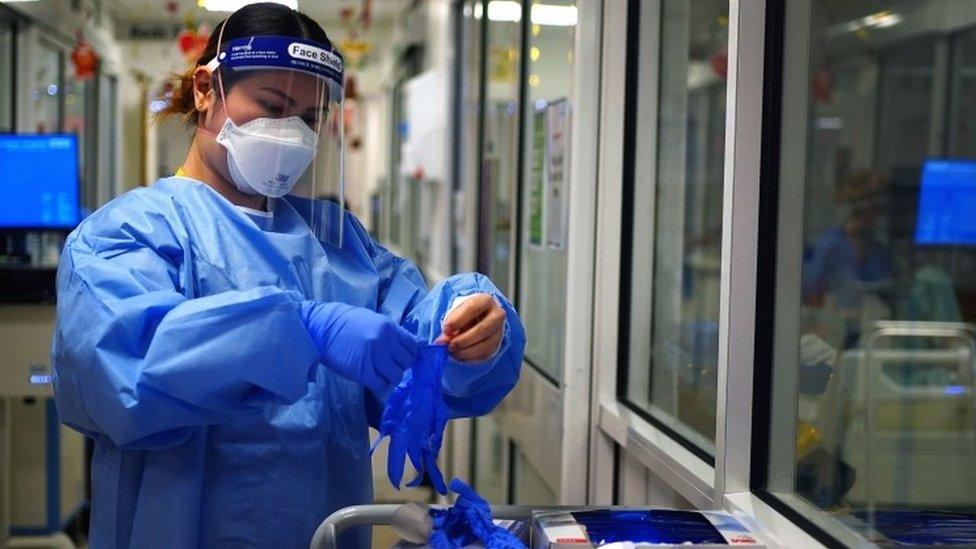Covid in Scotland: Doctors back 'caution' on self-isolation rules
- Published
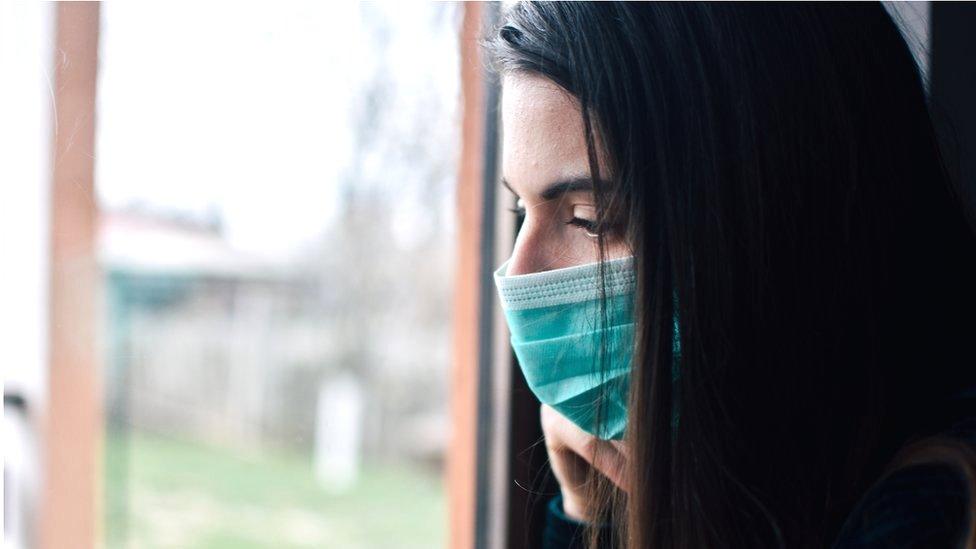
Doctors say there is not yet enough evidence to determine whether it is safe to reduce isolation periods
Doctors have said they support a "cautious" approach as the Scottish government considers whether to ease the rules on self-isolation.
The BMA in Scotland said there was not yet enough data to be sure of the potential risks, amid concerns about exposing staff and patients to Covid.
Opposition parties have called for Scotland to follow England and cut the isolation period from 10 days to seven.
It comes as Scotland reported another record number of daily Covid cases.
A total of 16,857 cases were reported on Thursday, up from 15,849 on Wednesday.
The number of people in hospital with the virus has risen from 679 to 810, while the number in intensive care fell from 36 to 34. Nine further deaths have been reported.
First Minister Nicola Sturgeon said on Wednesday that ministers were "weighing the risks and benefits" of shortening the isolation period. A decision will be made in the next week.
People who test positive in Scotland have to isolate for 10 days, while those in England can leave quarantine after seven days if they record two negative tests.
Household contacts also have to isolate for 10 days in Scotland, but this is not required in England for those who are double-vaccinated.
The US has halved the number of isolation days to five following advice from the Centers for Disease Control (CDC).
Dr Lewis Morrison, chair of the British Medical Association (BMA) in Scotland, said colleagues were feeling "washed out" because of high absence rates increasing their workload and the anxiety that comes from colleagues being sent home at short notice.
But he said there was a "tricky balance to strike" if the government planned to reduce the length of isolation.
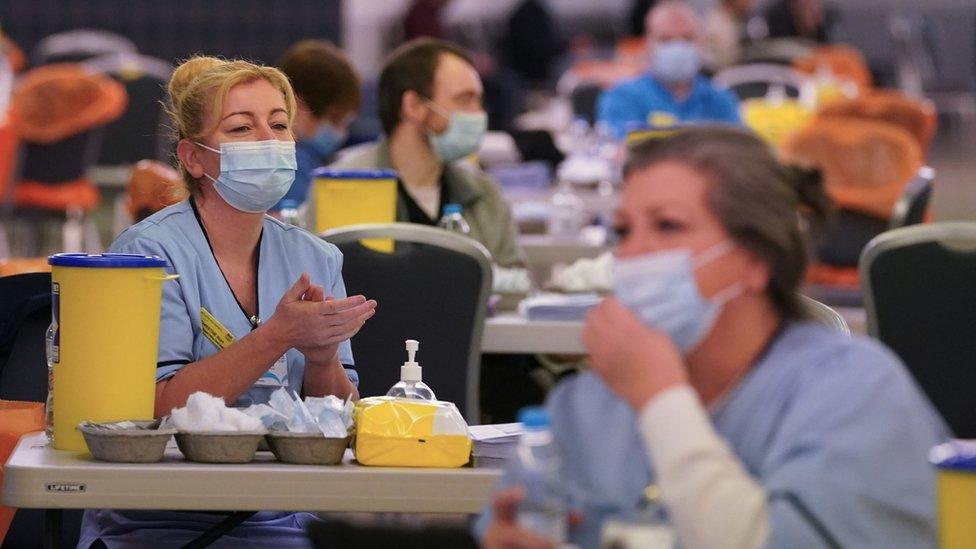
He told the BBC's Good Morning Scotland programme: "If those rules change we need to be sure that doesn't either expose staff themselves or indeed the patients they look after to additional risk from Covid.
"Caution is sensible in that situation until we're absolutely sure. Whilst we're trying to live and work under these rules, the other aspect is the health boards have to have concrete plans in place to backfill any staff who potentially at short notice have to go off.
"That's particularly difficult over the festive period because NHS staff are entitled to their holidays as well as everybody else."
Dr Donald Macaskill, chief executive of Scottish Care, told the programme there was very little data on how the isolation rules affect vulnerable people, such as those living in care homes.
'Precautious approach'
He said: "When we get that data I would still be saying we need to specifically look at those who are supported [in care homes] because the impact on them from an individual who may be a minimum risk to someone else in the community may be too significant for us to change.
"We know that the strains of Covid have particularly impacted on our older and more vulnerable population.
"We are always hoping against hope, but it's still too early to take our eye off a very precautious approach."
Both Scottish Conservative leader Douglas Ross and Scottish Labour leader Anas Sarwar questioned the first minister on the issue during her Covid update to Holyrood.
Mr Ross suggested that Ms Sturgeon was being indecisive, saying her message on "essential changes" was to "tune in next week".
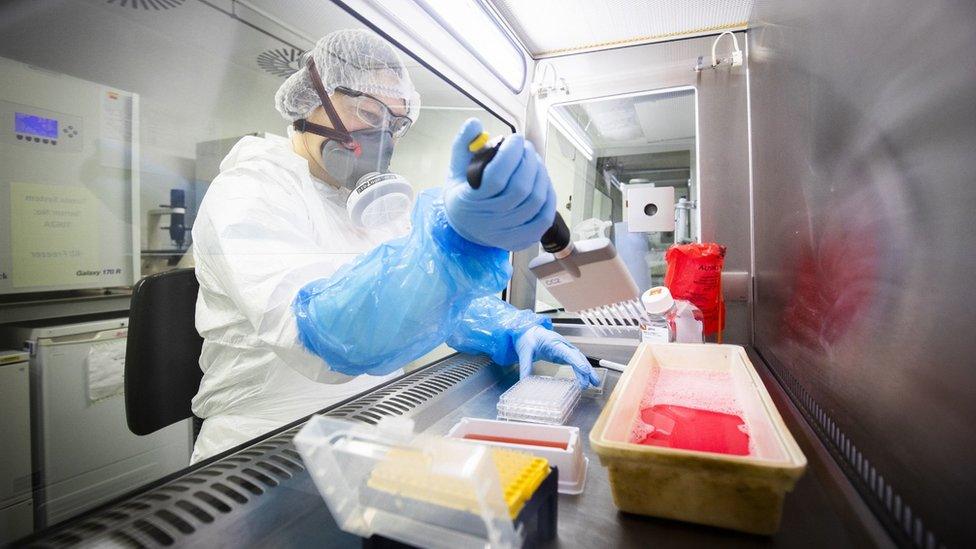
His party's Covid recovery spokesperson Murdo Fraser told the BBC he accepted that reducing isolation was a "finely balanced" issue.
He said: "What we have to do is weigh up the potential risks from reducing the isolation period, as indeed other countries have done.
"We are seeing a trend internationally of this period being reduced.
"I think looking at international evidence and what scientists are saying elsewhere would have led us to the conclusion that a modest reduction from 10 days to seven days would be sensible and would be an appropriate balancing of the risks."
'An open mind'
Health Secretary Humza Yousaf said the Scottish government understood there was a "strong argument" for easing the rules, but was still examining a "range of data".
This includes infection trends and hospitalisation rates, as well as figures from countries which have relaxed isolation rules.
Asked what it would take for the 10 days to be reduced, he said: "Essentially the question we're looking to answer from that range of data is whether or not reducing the isolation period could inadvertently accelerate transmission in the community.
"Of course that would be bad for public services and the economy.
"I wouldn't want to pre-empt the discussion that would undoubtedly take place between government. We're genuinely looking at it with an open mind and being guided by the data."


- Published29 December 2021
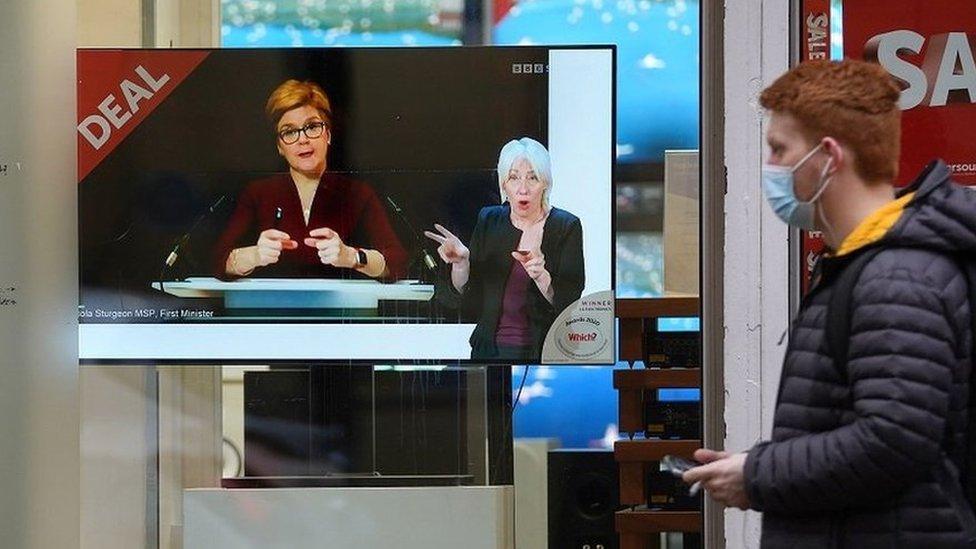
- Published29 December 2021
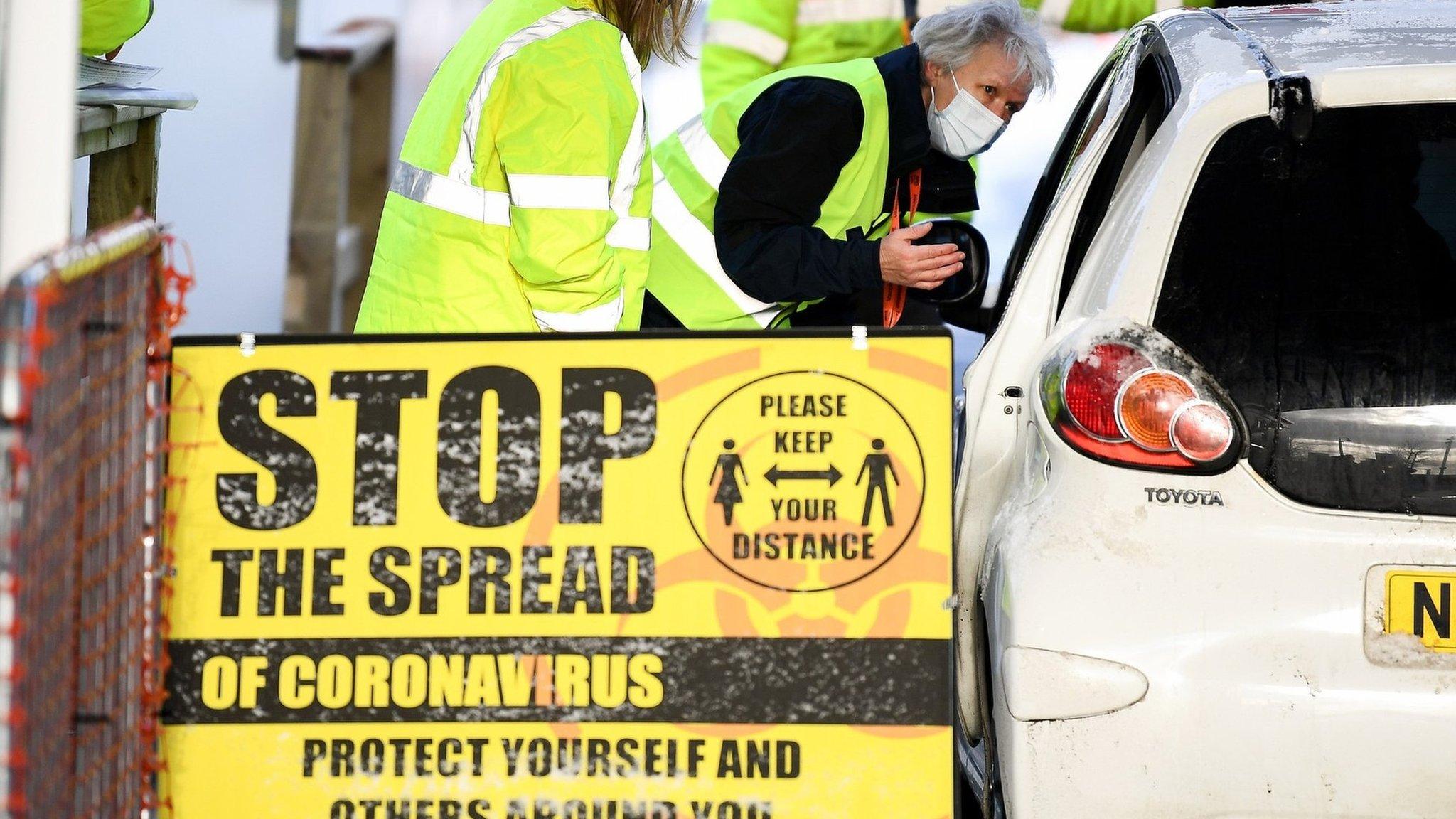
- Published30 December 2021
